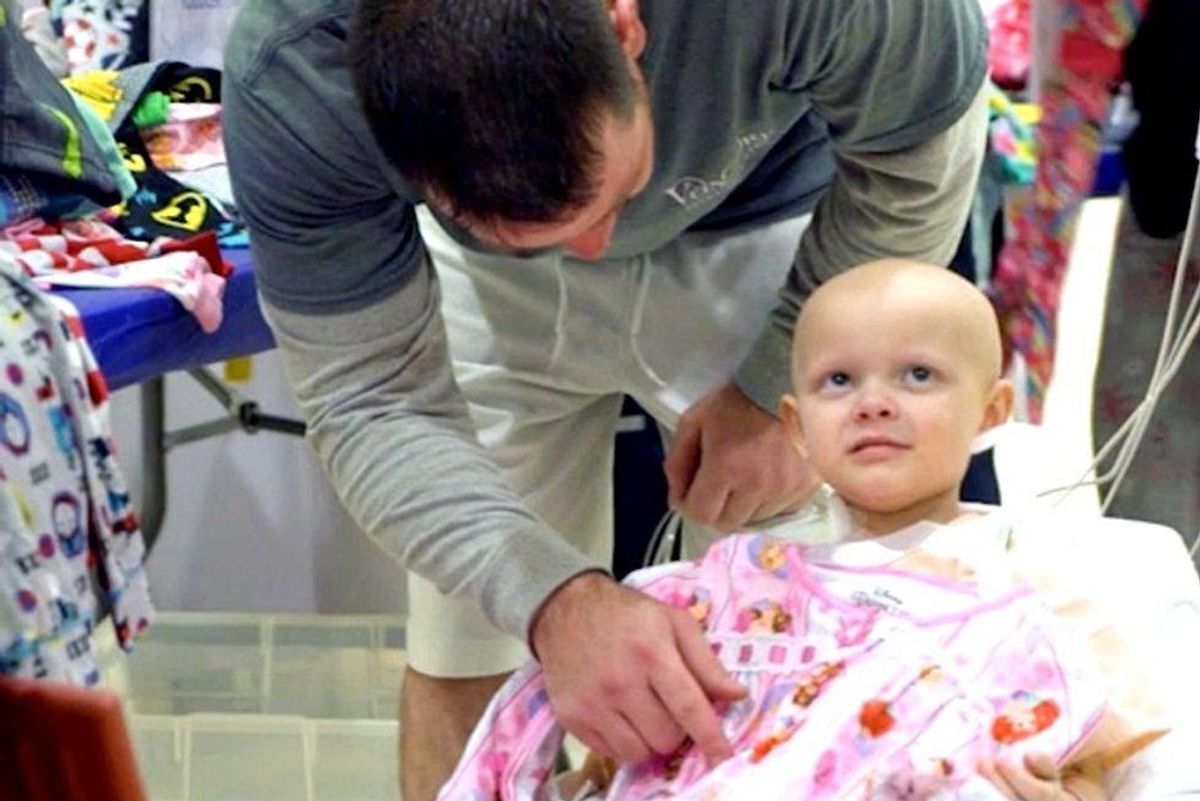Here’s a personal look at how families and researchers use science to take on rare genetic diseases

When Kelly Mantoan got the news that her 1-year-old son, Fulton, had spinal muscular atrophy (SMA) – a rare and progressive genetic disease – she was devastated. More difficult news came just a few months later when she gave birth to her newborn son, Teddy, at 32 weeks. As she sat with him in the neonatal intensive care unit shortly after his birth, doctors confirmed that Teddy had tested positive for SMA as well.
"I was sobbing uncontrollably," Kelly remembers. "[My husband and I] hadn't even fully come to terms with Fulton's diagnosis, and now we have two kids with it."
The Mantoans knew little about SMA – only that the condition involved the loss of motor neurons in the spinal cord due to a defect on the SMN1 gene. The SMN1 defect, the couple learned, meant the boys were unable to produce a protein called SMN, or "survival motor neuron." Without this protein, the muscles surrounding the spinal cord (and then, later, distal muscles such as the arms and legs) gradually weaken, affecting the person's ability to walk, breathe, and swallow. Worse still, while Teddy had been classified as having SMA Type 2, Fulton was classified as having Type 1 – the most fatal form of SMA, typically resulting in a life expectancy of less than three years. (Fulton was later re-evaluated and determined to have SMA Type 2. With proper care, people living with SMA Type 2 often live well into adulthood.)
"We truly thought Fulton was going to die within three years," Kelly recalls.
At the time of Fulton's diagnosis in 2009, there was little anyone could do. Physical therapy helped slow the muscular atrophy, but no medications existed to reverse the muscle function that the boys had already lost. But when Fulton was 8 and Teddy was 10, Kelly heard about a clinical trial for a drug, infused every few months through a lumbar puncture, that could stop the muscle atrophy and potentially even reverse some of the damage. If the treatment worked, the boys, who were now in wheelchairs full time – might be able to regain some of their muscle strength and their function. Kelly and her husband, Tony, were skeptical at first, but changed their minds when other parents in the SMA community started reporting incredible results. Kids with SMA who had lost muscle function were starting to smile, to hold things, to lift their heads on their own. "When it got FDA approval, I knew enough about it that I wanted to get both boys on board," she says.
Testing and advancing new genetic therapies toward FDA approval is the ultimate goal of scientists such as Jane Owens, a Senior Director in the Discovery Biology group at Pfizer within their Rare Disease Research Unit. Owens leads a group of scientists who work to develop medicines for patients with rare diseases that affect skeletal muscles. Although Owens and her team were not involved in developing the therapy that Fulton and Teddy Mantoan have used, they are helping develop therapies that may address the underlying cause of other genetic diseases. "Our genes contain the instructions for making proteins," Owens says. "If the cause of a genetic disease is a gene mutation that results in low levels or even none of that protein being made, we can generate a molecular construct that allows us to deliver a corrected copy of the gene to the patient, thereby replacing the missing protein," she says. This, says Owens, is the premise of many gene therapies in development — and the medicines that may be borne out of this research give hope to families like the Mantoans. "As scientists, our goal is to advance research to unlock the promise of gene therapy for patients, living with rare genetic diseases worldwide, for whom the current standard of care falls short. We're driven by the potentially transformative benefits for patients and their families," Owens said.

Currently, Teddy (now 10) and Fulton (13) are both on a new genetic medicine for their SMA. The new medication, similar to the first, is designed to stimulate the production of the missing protein, only this time the boys take a daily oral medication rather than a lumbar puncture.
While neither of the Mantoan boys has seen dramatic changes in their condition, Kelly says that their therapy has prevented a decline — something the entire family is thankful for. "People want to know if they're doing these big grandiose things like walking, and they're not doing that. But breathing is so important, and we're grateful they haven't lost that ability."
It is important to note that all families may not have the same experience as the Mantoans. There is still much to be understood about genetic therapy. "It's not right for every patient, and the patient responses may be variable," Owens said.
Looking toward the future, the Mantoans are cautiously optimistic that genetic medicine will help the boys maintain their present quality of life.
"Prior to these [treatments], you'd have a skill, then plateau, and then your function would decline and continue to go down," she says. "Now the boys are maintaining, and they're not getting significantly weaker. We're just really happy about that."


 Season 9 Ugh GIF by Curb Your Enthusiasm
Season 9 Ugh GIF by Curb Your Enthusiasm
 No Way Beer GIF by Busch
No Way Beer GIF by Busch pushing air travel GIF
pushing air travel GIF